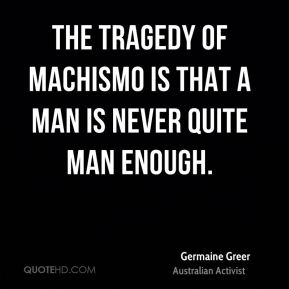
This week’s material challenges the social construction of gender and sexuality in Chicano families. Recently I read an article in another class, which connected to this week’s discourse on sexuality and Chicano families. In her article “Speaking from the Margin: Uninvited Discourse on Sexuality and Power,” Emma Perez raises some very important points when it comes to interlocking systems of oppression (racism, classism, sexism, heterosexism, and homophobia) that women of color experience in the greater Anglo society and the Chicano community. Perez makes it clear that we cannot have “a class and race based revolution…as it cheats the revolution” (57). In other words, we can’t leave sexuality out of the discourse when thinking about a revolution that seeks to overthrow patriarchy/heteropatriarchy. At the core of her argument, she critiques “Freud, Lucan, and Foucault’s, the male theoreticians, to name a few, concluding that they are “theoretical imbecibles” when it comes to women” (59). Because each theorist places women on the margins, she calls out their gendered theories, which reinforce notions of male superiority and dominance and power, rooted in the heteropatriarchal structure of our society. She suggests that we “reject this addictive pattern of patriarchy… which requires us to shed to the internalized sexist, homophobic, elitist, and racist behaviors” (66). Similar to Perez, Trujillo also talks about sexuality and challenging the heteropatriarchal nature of our society in her article “Chicana Lesbians: Fear and Loathing in the Chicano community.” She not only talks about the gender roles that are imposed on Chicana women, but she also talks about how the culture teaches women to not embrace their sexuality. As she notes, “As Chicanas, we are commonly led to believe that talking about our participation and satisfaction of sex is taboo” (186). At the core of Trujillo’s argument, like Perez, they challenge the patriarchal structure of our society that perpetuates interlocking systems of oppression. Some of us get used to thinking about issues only associated with class and race, however, we can’t forget about the marginalization of the LBGTQ community. We must be conscious of how heteropatriarchy only acknowledges the male/female dichotomy-we must be conscious of the social construction of gender-we must reject the reality of the status quo that has been imposed on us, and reconstruct the reality that strives for social, economic, and political equality-one that accepts all people not matter their race, class, gender, sexuality, etc.
Perez, Emma. “Speaking from the Margin: Uninvited Discourse on Sexuality and Power.” In Building with Our Hands: New Directions in Chicana Studies. Eds. Pesquera, Beatriz M., Torre, Adela de La. Berkeley: U of California, 1993. 57-71. EBSCO Host. Web. 08 Sept. 2016.

